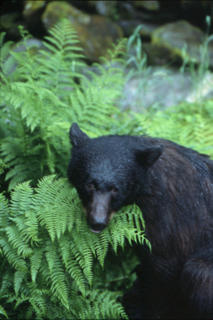Today, drove from a farm outside Duncan--perfect farm house, all porches and high ceilings, but a few things you don't expect on a Canadian farm, including water buffalo--into the Cowichan Valley, then onto a logging road, down to Port Renfrew and across to Sooke.
No reason for any of that to mean much to you, unless you've spent way too much time studying the geography of Vancouver Island.
The thing is, in the middle of the drive, there was a sign pointing to a spruce tree.
And it was a really good tree, probably upwards of a hundred feet tall, a good twenty or thirty feet around.
But how did we get to the point where these trees, which once dominated the forests of the Pacific Northwest, needed signs to point them out?
They got used in guitars, in Howard Hughes' Spruce Goose. They were used heavily for making fighter jets in World War Two.
In this part of the world, it was actually the Western red cedar that was the center of life. The First Nations people made everything out of it: canoes, totem poles, clothes, medicine.
It was also the tree that was the center of the forest itself. The top soil is very bad all along the coast, only a few inches thick in most places. When the cedar trees would die, they'd provide the nursery for new trees, which would grow up right out of the fallen log.
Live cedar can also support fully grown trees growing off it; the cedar is so massive, a fifty-foot alder seems like nothing more than a pimple.
A couple years ago, north of here, I paddled to a small island with big trees, including one of the largest Western red cedar trees still standing. But that wasn't the one that got my attention. There was another, which perfectly showed off a facet of cedar life: as they age, they rot from the inside out. This is normal, does nothing to slow them down, but it means there's a big hollow space inside.
In this particular tree, you could walk inside, like you were a Keebler elf, and stand in a hollow space in the tree, maybe 15 feet across, 30 feet high.
It was like that book I loved as a kid, about the boy who ran away from home and lived in a tree in the woods.
It was like being taken into the tree's breath.
It was a way of understanding, for the first time ever, the depth of time in any life.
Trees abide. Trees hang out. Even if they're so lonely they need a sign pointing to them, trees will wait for what happens next, because they know all things must pass.
Many, many years ago, the guy who wrote Doonesbury did a TV special with his characters. The last line of the show was, "Things gotta change, right? And the trees agree. Good going, trees."

